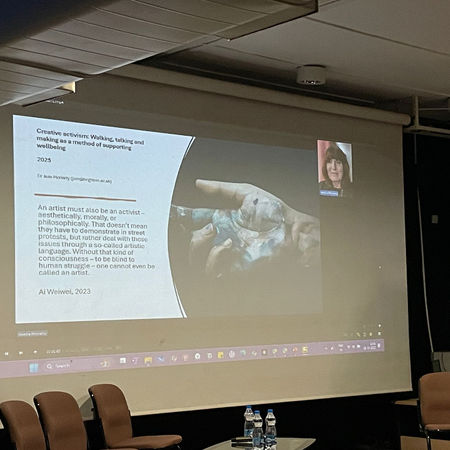To Help Those Who Can't Help Themselves
CMHARTS


Innovative and Accessible Non-Clinical Mental Health Solutions in Indian Schools
Hosted by CMHARTS in collaboration with the Bombay Psychiatric Society and the Department of Applied Psychology at the University of Mumbai, this one-day seminar brought together diverse voices in the field of mental health to explore forward-thinking, non-clinical approaches for school-based mental wellness.
Held at the National Centre for Nanoscience and Nanotechnology, the event welcomed mental health professionals, educators, students, and entrepreneurs to engage in powerful conversations about the future of mental health delivery in Indian schools. Through a mix of presentations, discussions, and interactive Q&A sessions, participants examined how accessible, community-based, and tech-enabled interventions can create sustainable impact in the lives of young learners.
Dr. Mansi spoke about brain development, emphasizing how early life experiences shape neural pathways and influence cognitive, emotional, and social growth.
Dr. Prajakta spoke about MOUJ, CMHARTS' flagship project that integrates mental health into the curriculum for over 6,000 students, with standardized delivery and measurable outcomes.
Dr. Bhooshan stressed the need for a structural framework and multidisciplinary teams to ensure that school mental health programs reach all children. He emphasized early identification, social skills training, prevention, and the provision of positive support within school settings.
Mr. Manoj highlighted how AI can enhance classroom learning by increasing engagement and helping teachers tailor lessons through real-time assessments of students’ understanding. He emphasized AI's potential to address challenges such as limited resources, gaps in teacher training, diverse learning needs, and parental disengagement—opening doors for more personalized, tech-integrated education.
Dr. Vinay discussed AI's role in screening neurodevelopmental disorders using quick computer-based games. These tools have broad applications in aging and neurorehabilitation, offering faster and more accessible mental health support across all age groups.
Prof. Perry introduced us to the power of creative writing as a therapeutic intervention, showing how expression through words can support emotional healing and self-awareness.
Ms. Anvi emphasized the importance of non-clinical interventions in mental healthcare, especially within educational settings, to promote well-being and resilience among students.
Prof. Moriarty introduced autoethnographic research—an approach that combines personal experience with academic insight to explore identity, emotion, and social context.
From passionate dialogue to practical takeaways, the seminar served as a vibrant platform for innovation, connection, and collaboration. We are deeply thankful to our speakers, chairpersons, and attendees for making this event both insightful and inspiring—and to our partners for their vital support.
This gathering marks an exciting step forward in CMHARTS’ ongoing mission to build compassionate, accessible mental health ecosystems in schools across India. We’re energized by the momentum and already looking ahead to future conversations and collaborations.
Project Gallery






